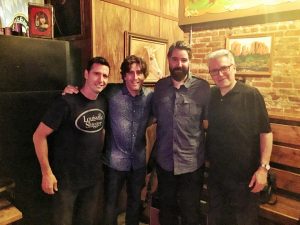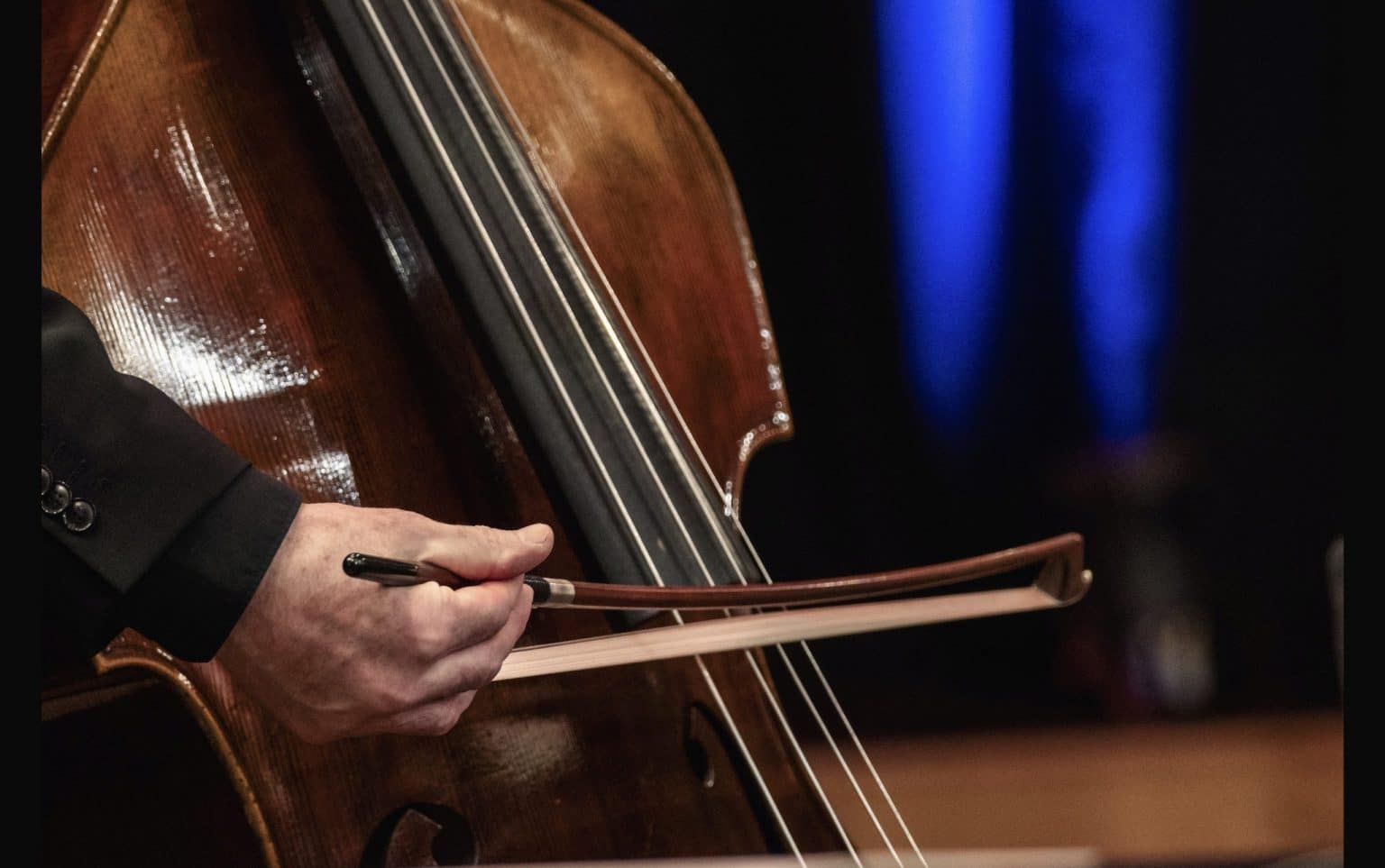Like many musicians, I often teach at workshops during the summer. I always learn as much from the students as I hope they learn from me. It’s a teachers’ cliché, but I learn from other musicians of all levels—students, beginners, hobbyists, semi-pros; and also from the huge breadth of talent, expertise and dedication embodied by my fellow teachers.
This summer I revisited a couple of my favorite.workshops: The Sligo Jazz Workshop in Ireland, and the Jamey Aebersold Summer Jazz Workshop in Louisville, Kentucky, USA. Both camps feature dedicated teachers, enthusiastic participants—and I did, once again, learn a lot and experience great joy through sharing music with people from all walks of life.
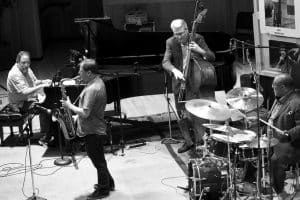
I’d like to thank all of the students who participated. Without you, these weeklong music-learning experiences wouldn’t exist, and the world would be less enlightened, less tolerant, and not as groovy. Jazz workshops focus on music, not on any kind of Olympic-style competition or pressure to be super human or fierce. Jazz is the great equalizer. A student who just recently took up saxophone can revel in the amazing energy of Chris Potter, Matthew Halpin or Eric Alexander. They’re all in the same club; they’re all musicians. The kid who just bought a bass finds the same Db on the neck (where was that again?) that Federico Malaman, Steve Rodby and Rufus Reid play. They’re all part of the bass community.
When I first started attending jazz workshops in the late ’70s, and teaching for Jamey Aebersold in 1980, his Summer Jazz Workshops were the only weeklong summer programs for small-group improvisation, with the exception of the Stanford Jazz Workshop and a few scattered college offerings. The workshop audience was very different from the audiences at the jazz clubs where I had been playing. At workshop performances, hundreds of people hang on every note, and most of them listen deeply. They want to not only be entertained by the music, but also know how and why the musicians onstage are doing what they do. They want information, along with great music, and these workshops deliver.
A few of my vivid memories from the past 40 years of workshop performances include, as a student:
- Hearing Joe Henderson and Woody Shaw play a very fast completely burning, frighteningly aggressive tune with Rufus Reid on bass and Ed Soph on drums (Louisville, 1977). I didn’t know what they were doing at the time, but I knew I wanted to know what it was and learn how to do it myself—inspiring.
- Watching Dave Liebman give his very first clinic/performance (Iowa, ca. 1978). Dave talked about his time with Miles Davis, and the New York “loft scene.” That made me want to move to New York, which I did two years later.
- Having Ron McClure give me a five-minute lesson and “show me” how to play in thumb position on the bass (Louisville, 1979). He pointed out that it’s easy when you know how. I discovered, after I practiced for another few years, that he was right.
As a teacher at various workshops, I remember a few sublime moments:
- Playing some sets with Dave Liebman with two bassists (early ’80s). I played electric, Todd Coolman played double bass. Liebman would sketch out the whole set on three or four lines on a set of staff paper . . . an intro on a certain chord progression, an odd-meter vamp, some beautiful ballad changes, something fast and crazy to end the set. Exciting stuff.
- Playing trio with Ed Soph and Steve Erquiaga—two incredibly musical players. You can find some of those performances on YouTube now (mid-80s).
- Playing with James Moody in quartet (Louisville, 2009). From the early years of bebop, up until the conclusion of his life in 2010, Moody was a driving force on the jazz scene. He was in a way the ultimate teacher, because when he played or talked, he filled the room with an undeniable power, joy, and love of music and life. I had played with Moody on various occasions over the years, but I was thrilled with this particular performance at the Aebersold camp. He brought the entire history of jazz to the students (and faculty) that night.
- This summer, I played a lot of music with incredible musicians, and to pick any particular set as “the best” would be selling the others short. I would say though, that playing “So What” with Jimmy Cobb, Phil DeGreg, Randy Brecker, Eric Alexander, Jim Snidero and Steve Davis was just one of the many high points (Louisville, 2016).
- This *is* my blog post, but it’s really not all just about me, me, me. Another highlight from this summer was sharing the stage with Liane Carroll (Sligo, Ireland, 2016). Yes, I was also playing bass, but Liane’s duet with Sara Colman was brilliant—thank you Liane and Sara.
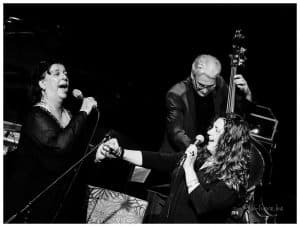
My goal when teaching at a workshop is to show participants at all levels that they can make music now, in the moment, no matter what their level of musical development. Great musicians play within the boundaries of their technique, possibly even pushing the boundaries for a bit of risk, excitement and fun. Once students realize where they are in their development, and the work that needs to be done to get better, they can begin to make great strides towards solid musicianship. There are no magic pills for becoming a better musician, but at the Aebersold and Sligo workshops, students are shown a clear path to improvement as instrumentalists and improvisers, and given more enjoyment of music as listeners. Thanks to everyone who made the effort to come, participate, listen and play.
Here are a few of the nice folks who I encountered this summer:

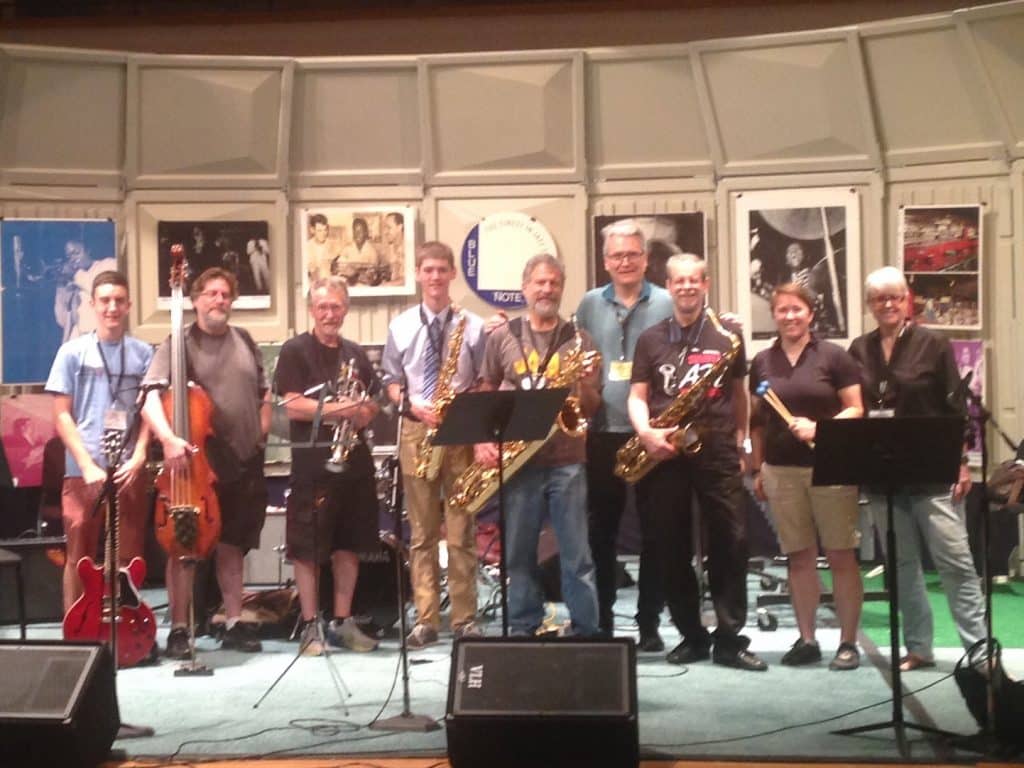
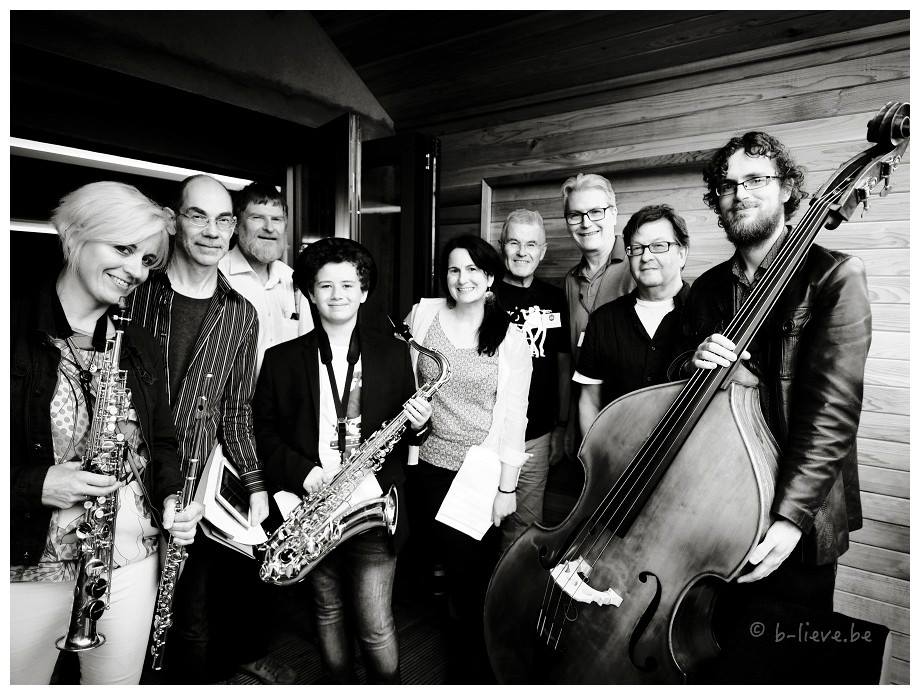
Of course, it wasn’t just all about workshops. I did a couple of nights at the NachBar in Louisville with my friends (l. to r.) Jason Tiemann, Corey Christiansen and Jacob Duncan. Extra-curricular jazz!
